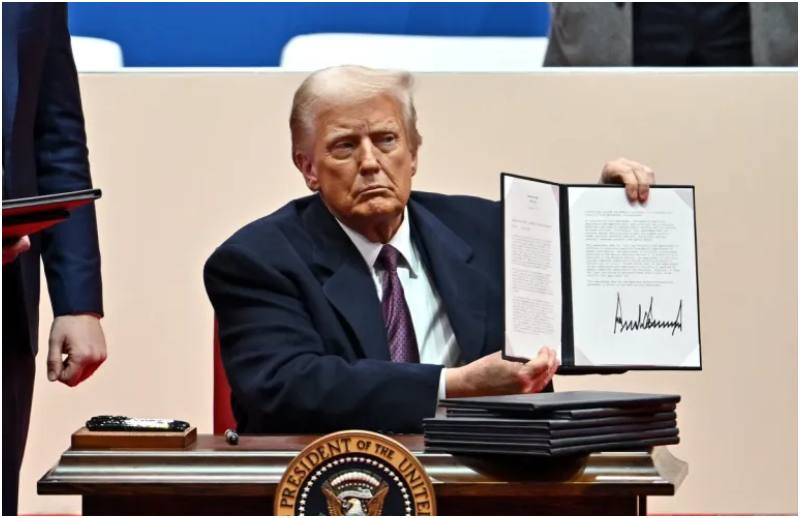In a major political move on Monday, Jan. 20, 2025, U.S. President Donald Trump issued pardons for approximately 1,500 individuals convicted for their involvement in the Jan. 6, 2021, Capitol attack.
The rioters, who stormed the Capitol in a bid to disrupt the certification of the 2020 presidential election, will now see their convictions erased by the president’s orders.
Additionally, Trump commuted the sentences of 14 others, including Oath Keepers leader Stewart Rhodes, who will be released from custody but retain their convictions.
Trump characterized the defendants as “hostages,” echoing previous rhetoric regarding the Capitol rioters, and announced that his administration was conducting “further research” on the group whose sentences had been commuted. The announcement is part of Trump’s broader efforts to undermine the legal consequences of the January 6 attack, framing the actions of those involved as politically motivated.
Among the high-profile recipients of full pardons was Enrique Tarrio, the leader of the far-right Proud Boys group. Tarrio was convicted in 2023 of seditious conspiracy and conspiracy to obstruct an official proceeding after prosecutors argued that he orchestrated and encouraged the Capitol attack despite being absent from Washington D.C. at the time. His release was confirmed by his mother via social media.
The pardons come amid heightened tensions over legal and political ramifications stemming from the Capitol attack. Earlier in the day, President Joe Biden issued a preemptive pardon for members of the House Select Committee on the January 6 attack, who he feared might be targeted by Trump’s administration.
Biden also pardoned former Chief Medical Advisor Anthony Fauci, former Joint Chiefs of Staff Chairman Mark Milley, and members of his own family in a similar context.
Trump himself had faced legal jeopardy related to the January 6 events. Special Counsel Jack Smith investigated allegations that Trump pressured then-Vice President Mike Pence to interfere with the election certification process, and that Trump had encouraged his supporters to obstruct the proceedings.
Although charges were ultimately dropped after Trump’s election victory, Smith’s report underscored the importance of such prosecutions to preserve the integrity of the electoral process and ensure the peaceful transfer of power.
These pardons and actions raise questions about the political and legal repercussions of the January 6 attack, and how they may influence future election-related legal strategies and the broader public perception of accountability in U.S. politics.

